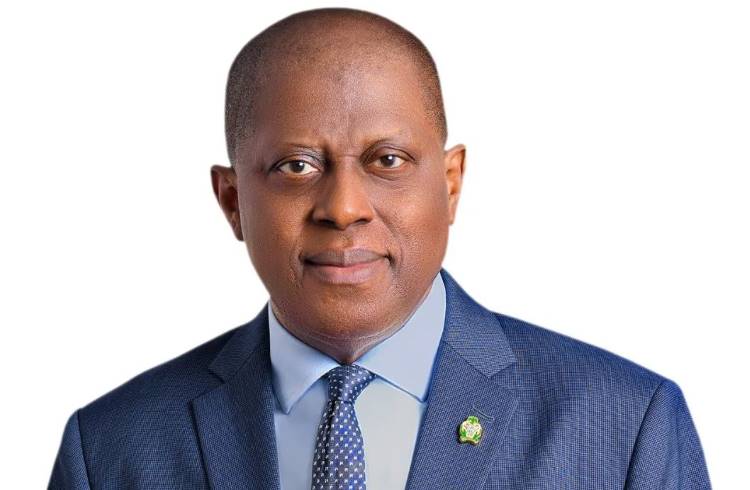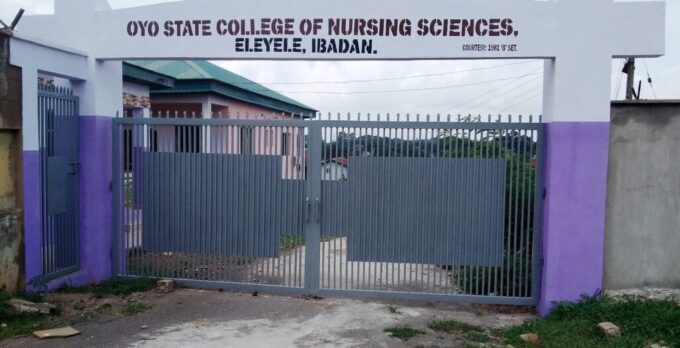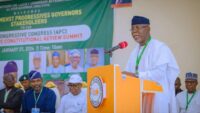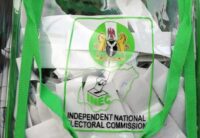By Michael Nwadike
The Central Bank of Nigeria (CBN) has continued to take steps that ensure higher reserves accretion, stable naira and elevated dollar liquidity. The ongoing oil prices rally over Israel-Iran war portends a combination of risks and upsides for the economy, underlining the need for proactive management of its impact. Brent Oil Futures for July delivery gained over nine per cent, trading at $75.15 per barrel (pb), the highest price since early February. Analysts said apex bank is already leveraging on the oil prices rally to consolidate recent gains on foreign reserves, price and exchange naira stability.
Oil prices spiked higher at the weekend after Israel executed a large preemptive strike on Iran, heightening concerns of a wider conflict in the Middle East and significant disruptions to oil supply routes.
Brent Oil Futures for July delivery gained over nine per cent, trading at $75.15 per barrel, the highest price since early February. West Texas Intermediate (WTI) crude futures increased to $74 per barrel, posting a 10 per cent increase at their peak.
While markets are closely monitoring the potential impact on Iranian oil production, analysts believe escalating concerns over a possible blockade of the Strait of Hormuz could trigger a sharp surge in oil prices.
This development also has major impact on Nigeria’s economy, dollar earnings, FX reserves position, as well as price and exchange rate stability for the country.
Already, Nigerian naira outlook has brightened as crude oil passed the Federal Government’s benchmark for the first time. The benchmark for Crude oil under the Federal Government’s Budget was $75 a barrel.
Besides, fundamental reforms introduced by the apex bank has also corrected structural imbalances that prevented maximum growth. The Gross Domestic Product (GDP) grew by 3.4 per cent in 2024, with fourth quarter hitting 4.6 per cent, the highest quarter of growth in over a decade.
Inflation is easing gradually, steadying the price of food staples like rice and beans while net foreign reserves have increased fivefold, and the Naira exchange rate has stabilised.
Analyst Daan Struyven at Goldman Sachs raised his short-term price target, warning that the conflict could briefly cut 1.75 million bpd of Iranian oil, pushing Brent above $90p/b. Aside the expected surge in oil revenue, the Central Bank of Nigeria (CBN) Governor, Olayemi Cardoso has through foresight, activated other measures that will ensure that more dollars accrue to the economy.
The apex bank is taking measures to improve Nigeria’s export potential, promoting backward integration principles to reduce import of items that can be produced locally and simplifying dollar remittances to domestic economy for Nigerians in diaspora.
Drawing from China’s economic strategy, the apex bank said Nigeria’s competitive exchange rate can drive export-led growth.
To harness this potential, businesses are expected to adopt export-oriented strategies by targeting sectors with strong export potential such as agriculture, manufacturing and creative industries; implement import-substitution models by strengthening domestic production capabilities and reducing reliance on costly imports; and focus on value addition by shifting from exporting raw materials to processed goods, thereby boosting foreign exchange earnings.
Cardoso said Nigeria’s creative sector has potential to attract $25 billion annually to the economy, highlighting the untapped opportunities in Nigeria’s expanding creative sector, including music, film, crafts, and digital exports.
He urged businesses to explore international markets, digital platforms, and global tours to increase dollar revenue inflows.
Cardoso also recently advised telecom companies to reduce their dependence on foreign imports by producing key components of their inputs locally.
The backward integration proposal for the telecom industry comes at a time the real sector is in dire need of sustainable growth. The CBN boss gave insights on what the economy stands to gain from backward integration in the telecoms sector. He spoke in Abuja during a visit by Airtel Africa’s management team, led by Group CEO Sunil Taldar. Cardoso stressed that local production would help reduce pressure on the dollar, create jobs, and boost Nigeria’s economy.
He said that massive production of key inputs, that are currently being imported, like SIM cards, cables, and towers is essential.
He noted that over the past 16 months, the CBN has worked to stabilise the foreign exchange (forex) market, strengthen the Naira, and attract investors. With these improvements, he urged telecom firms to embrace backward integration.
In response, Airtel Africa’s CEO, Sunil Taldar, praised the CBN’s reforms and expressed support for local production, saying it would benefit telecom companies in the long run. He also reaffirmed Airtel’s commitment to expanding financial inclusion through technology.
Other analysts also mentioned the renewed interest of Foreign Portfolio Investors (FPIs) in the FX market—driven by improved market confidence, a more efficient FX framework, and strengthening macroeconomic conditions—alongside the CBN’s sustained market interventions, is expected to continually support naira stability. Chief Executive Officer, Centre for the Promotion of Private Enterprise (CPPE), Dr Muda Yusuf said there is a flight by investors towards ‘safe haven assets’ as global uncertainty heightens.
However, in Nigeria, there is historically a positive correlation between crude oil prices, GDP growth, and stock market performance. “The outlook for the Nigerian stock market is therefore likely to be positive in the current context,” Yusuf said.
He said the surge in crude oil price would impact on Nigeria’s forex earnings, oil being the biggest forex earner for the country.
“This development would also positively impact the country’s foreign reserves, ensure better forex liquidity and ultimately the stability of the naira exchange rate.
“The oil sector currently accounts for significant amount of government revenue. An improvement in crude oil price would therefore have a significant impact on government revenue. An improvement in revenue would positively impact fiscal consolidation and hopefully moderate the growth of the fiscal deficit.
“Investments in the oil and gas sector would post better returns if the conflict persists. High oil price is good news for upstream oil and gas investors,” Yusuf said.
Oil revenue target
Also, the possibility of Federal Government achieving N19.5 trillion oil revenue target for the year rose with the soaring prices of crude oil over Middle East crisis.
Analysts at Afrinvest West Africa, said that Federal Government’s projected oil revenue of N19.5 trillion will be on track.
They highlighted that based on previous macro commentary, the Federal Government needs to deploy a more prudent framework that prioritises sustainable budget growth.
There is also a high possibility that budget deficits for the year could reduce below N17 trillion, reducing total debt stock.
To sustain revenue surge, the analysts recommended some measures the FG can take to sustain the improved macroeconomic environment.
Firstly, with the increase in revenues and substantial reduction in PMS, Electricity and FX subsidies, the FG should be deploying more resources towards critical infrastructure development while also tackling insecurity headlong to support improved productivity in the agrarian communities.
Secondly, the Federal Government needs to prioritise optimising revenue potential by strategically using the instrumentality of the state to end crude oil theft and boost aggregate output to the target 2.06mbpd level.
Also, as recommended by the World Bank, reducing the cost of governance would be pivotal to Nigeria’s revitalisation drives, given the current disturbing level of debt profile.
Impact on telecoms
According to the Nigerian Communications Commission (NCC), the total active telephony subscribers increased by 3.2 per cent month/month to 164.93 million in December 2024.
The increase reflects the gradual recovery in the subscriber base following the conclusion of the NIN-SIM linkage program by mobile service providers in September.
Analyzing the market share by operators, MTN Nigeria led by 51.4 per cent with 84.61 million subscribers, Airtel Nigeria followed with 34.4 per cent (56.62 million subscribers), Globacom with 12.2 per cent (20.14 million subscribers) and 9mobile with 2.0 per cent (3.28 million subscribers).
At the same time, the total number of internet subscribers rose by two per cent month/month to 139.28 million in December. Looking ahead, analysts at Cordros Securities, said they expect subscriber base recovery through SIM reactivation initiatives, especially from market leaders – MTN Nigeria and Airtel Nigeria.
According to the National Bureau of Statistics (NBS) third quarter 2024 Gross Domestic Product (GDP) report, the Information and Communication sector, is made up of Telecommunications (telecoms) and Information Services; Publishing; Motion Picture, Sound Recording and Music Production; and Broadcasting.
Views from stakeholders
Executive Secretary of the Association of Licensed Telecommunication Operators of Nigeria (ALTON), Gbolahan Awonuga, said that aside telecom operators, other key business owners and entrepreneurs can also invest in the local manufacturing of key components in telecoms operations.
He said: “We have to look inwards and get Nigerian companies to produce these key components in telecom operations locally. Government also has a role to play, by ensuring that key infrastructure especially power is available. We do not want a situation where locally produced inputs, will become more expensive than imported versions”.
Awonuga said that telecom sector plays key roles in banking services, including enabling digital payments and ensuring security of transactions.
He said banking and telecom sectors have more to gain if backward integration thrives in the country adding that government has significant role to play to make the move a success.
Research Head, Cowry Asset Management Limited, Charles Abuede, said the CBN governor’s call was to discourage the importation of foreign services into Nigeria, especially when efforts can be made to develop such services locally.
“The high demand for foreign exchange by telecom operators has further pressured the naira due to increased demand for the dollar. However, with adequate infrastructure development and a conducive operating environment facilitated by regulators, these challenges can be mitigated,” he said.
According to Abuede, “given Nigeria’s FX policies, illiquidity in the foreign exchange market, and infrastructure deficits, I think increased investment in the telecom sector would enable operators to embrace backward integration. This would allow them to manufacture key components, such as SIM cards, locally. As a result, production costs could decline—provided the operating environment remains stable. This will improve profit margins and enhance both top-line and bottom-line growth in the long run”.
The CBN under Cardoso has carried out several efforts to improve the functioning of the FX market. This has led to good results with average daily turnover in the Nigerian Autonomous Foreign Exchange Market increased by 226 per cent in the first half of last year when compared to the same period in 2023.
Foreign portfolio inflows have increased by over 72 per cent during this period, while foreign exchange reserves have risen from $32bn in May 2023 to over $40bn.
This represents the equivalent of eight months’ import cover and marks the highest reserve level in nearly three years.
The market has also supported over $9bn in capital outflows over the past year as investors were able to freely repatriate capital and dividends without the need to wait for several months as experienced in the past.
These results, Cardoso said, reflect improved confidence in the reforms he embarked on.
“In addition, we witnessed a $6 billion current account surplus in the first half of 2024 as a result of the impact of these reforms. Reduction in petroleum product imports supported by improved domestic refining capacity, a growing focus on non-oil exports and higher remittance inflows helped to support the positive current account balance,” he said.

















Leave a comment